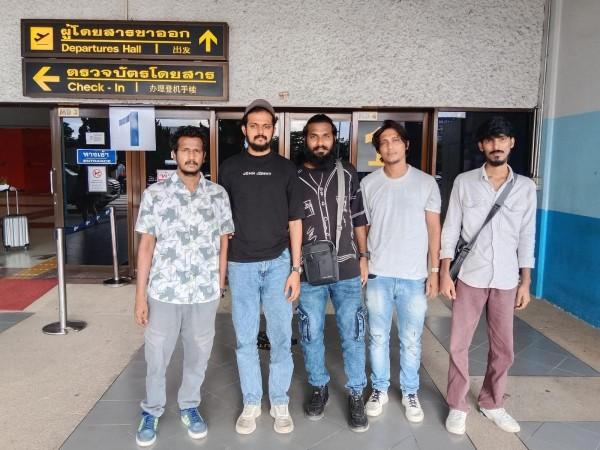
In a recent development that underscores the perils of fraudulent overseas job offers, the Indian Embassy in Laos has successfully rescued and repatriated 14 Indian youngsters. These individuals were ensnared in cyber-scam centres operating in the Golden Triangle Special Economic Zone (SEZ) in the Bokeo province of the Southeast Asian country. This rescue operation, announced on August 7, is the latest in a series of similar efforts by the Embassy.
The rescued individuals were lured to Laos under the guise of lucrative job offers. These offers, often for positions such as 'Digital Sales and Marketing Executives' or 'Customer Support Service', were made by dubious companies involved in call-centre scams and crypto-currency fraud. The recruitment process involved simple interviews and typing tests, with the promise of high salaries, hotel bookings, return air tickets, and visa facilitation.
However, the reality that awaited these individuals was far from the rosy picture painted by the recruiters. The victims were illegally transported across the border into Laos from Thailand, where they were initially promised employment. Once in Laos, they were held captive and forced to work under harsh and restrictive conditions in the Golden Triangle SEZ.

In response to these alarming incidents, the Indian Embassy in Laos has been proactive in issuing repeated warnings and advisories to Indian workers considering employment in Laos. The Embassy has urged individuals to exercise extreme caution and verify the credentials of recruiting agents and companies before accepting any job offers in Laos.
The advisory also highlighted the legal implications of such fraudulent activities, stating that Visa on Arrival in Thailand or Laos does not permit employment and the Lao authorities do not issue work permits to Indian nationals coming to Laos on such visas. It further warned that those convicted of human trafficking crimes could face sentences of up to 18 years in prison in Laos.
The Embassy's advisory detailed instances of Indian nationals being taken hostage by criminal syndicates involved in illegal activities. These individuals were subjected to strenuous working conditions, constant physical and mental torture, and were often forced into illegal work.

This issue is not isolated to Laos. Similar incidents have been reported in other Southeast Asian countries. For instance, the National Investigation Agency (NIA) in India recently made the sixth arrest in a human trafficking and cyber fraud case, where recruited youth were sent overseas to work in alleged fake call centres involved in online crimes. The investigation revealed an inter-State organised human trafficking syndicate with international linkages.
In another instance, the Tamil Nadu government's Commissionerate of Non-Resident Tamils' Welfare warned of strict legal action against agents/agencies sending people abroad for work without being registered with the Union government. This highlights the widespread nature of the problem and the need for coordinated international efforts to combat it.
The Indian Embassy in Laos, in its commitment to ensuring the safety and well-being of Indians, continues to work tirelessly with Lao authorities to rescue and repatriate individuals caught in such situations. The Embassy's efforts serve as a stark reminder of the dangers of fraudulent job offers and the importance of exercising caution when considering overseas employment. The incidents underscore the need for potential job seekers to remain vigilant and thoroughly verify the credentials of overseas job offers.

















